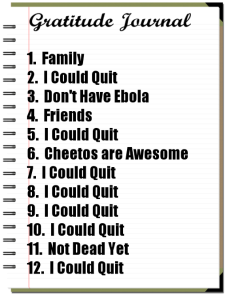Leave if you must. But leave when you are strong, not weak. Leaving should be a choice and not the only option.
― Ram Mohan
Leave if you must. But leave when you are strong, not weak. Leaving should be a choice and not the only option.
― Ram Mohan
If at first you don’t succeed, try, try again. Then quit. There’s no point in being a damned fool about it.
— W.C. Fields
No build-up or table-setting today. This is going to read like a direct continuation of part 1.
It is so hard to leave. Until you leave. Then it’s the easiest thing in the world.
— John Green, Paper Towns
Fair warning: This post is going to be a little raw. I haven’t done much editing or anything extra to produce it. I want to dump it out, and time is limited, and that’s that. So it’s going to read a little messier than average.
The number one question that people ask once you tell them you’re considering early retirement is: What will you do with your time?
After a decade and a half of saving and investing, I’ve seemingly come full circle.

Get ready for a fairly unfocused post. Oh, and a lot of repetition. Plus a distinct lack of direction. And did I mention repetition yet?
If I kept a gratitude journal, the first item listed every day would be to thank people in my life for being there for me. My wife. My parents. My siblings.
Today I’m going to talk about Investment Policy Statements. I’m creeping up on my early retirement date, set for April of this year, which has triggered a review process of my own IPS, and I wanted to share the details.
There have been some recent changes to the blog.
Continue reading
Last week, I met with a certified financial planner (CFP) to discuss my impending early retirement.